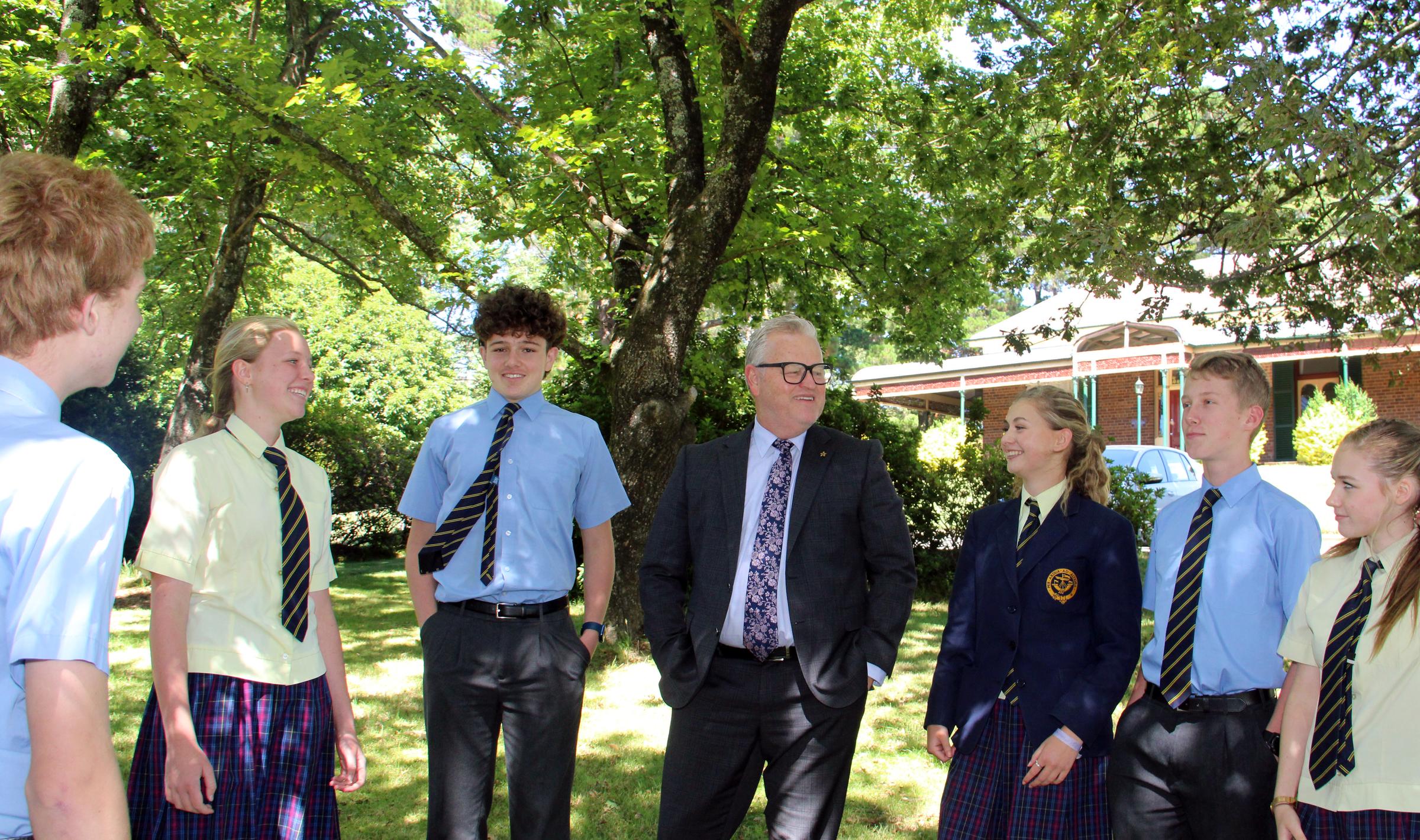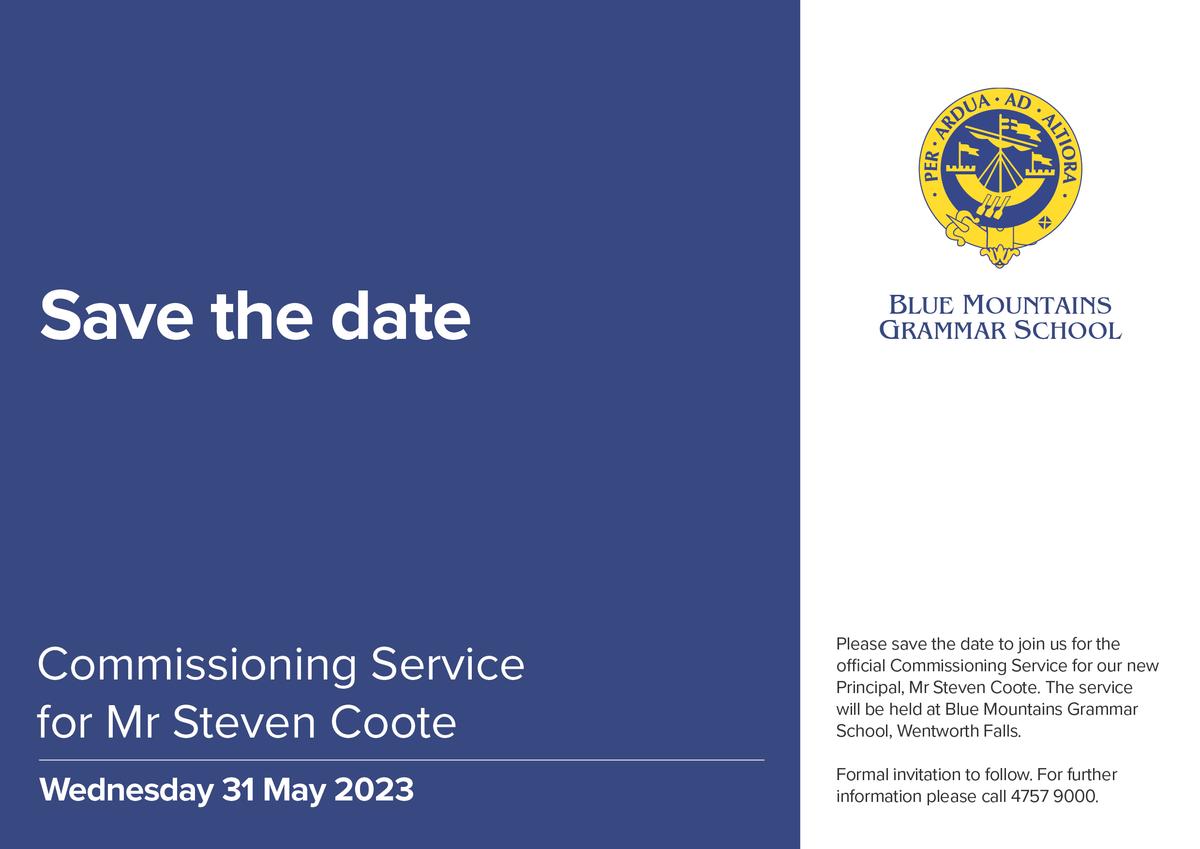From the Principal

Dear Parents and Caregivers,
Some 'Thanks'
I hope this newsletter finds you well. Today, I want to thank some people in our community. I want to thank the P&F at our Springwood campus. I am appreciative of their efforts in tending our gardens at our Springwood campus. The team of parents has worked to bring life and colour to the campus, and I am sure that as we gather tonight for the evening picnic, you will have the chance to appreciate their efforts.
I would also like to thank Parrish Robbins and the Wilderness Education team for their quick response to the recent catastrophic fire warning that required a last-minute redesign of the Year 7 camp. Their efforts ensured our students and staff were safe and could continue their camp experience without disruption.
Additionally, I am thankful for the accurate and timely advice provided by the local authorities, which allowed us to make informed decisions regarding the safety of our students and staff. While there were disruptions to plans that families had made, I am sure we are all in agreement that we will not compromise the safety of our children.
Future Schools
As a school community, we are committed to being intentional about continual improvement for our students and ourselves as teachers. We recognise that our world is constantly changing, and we must be responsive to new research and best practices in education.
As we engage in these conversations about a research-based approach to learning, we assure you that we will properly and diligently engage with you to help you be clear on what the research tells us. Blue Mountains Grammar School has been in the mountains for 105 years, and we have constantly and successfully navigated through the many changes we have seen in education across the last century. We have always strived to be educational leaders and are committed to continuing this tradition.
According to a new study by Pasi Sahlberg, a renowned education expert who previously served as the Director-General of Education in Finland, Australian students spend more time in the classroom than in any other country. The study found that students in Australia have completed almost 11,000 hours of schooling by the time they are 15 years old, which is a significant amount of time compared to other countries.
However, Sahlberg's study also found a negative correlation between the length of time spent in the classroom and the quality of learning. As Sahlberg puts it, "If we are precise with this, the correlation is slightly negative, which is an intriguing conclusion — the longer we try to teach our kids, the less they learn."
These findings suggest that simply increasing students' time in the classroom may not necessarily lead to improved learning outcomes. Instead, we must focus on delivering high-quality instruction that engages and motivates students, regardless of the time spent in the classroom.
The importance of balance between sitting for long periods and moving has been fascinating in schools over recent years. Professor Sahlberg's research highlights that sitting for extended periods can negatively impact health. However, recent research suggests prolonged sitting can also negatively affect academic outcomes.
Likewise, Professor Sahlberg's research shows that including physical activity throughout the day can improve academic outcomes and overall health. In Finland, for example, students spend 15 minutes every hour physically active. In fact, studies have found that physical activity can improve memory, attention, and cognitive function. As a result, we will work to incorporate physical activity into our teaching and learning activities. This is still in the planning stages but will feature prominently in our new Year 7 program.
And there are other benefits to getting moving as well - a recent study conducted by researchers at the University of South Australia found that exercise should be considered a first-line treatment for improved mental well-being and health. The study, which analysed data from 1,877 participants, found that physical activity was 1.5 times more effective in reducing symptoms of mental health concerns than traditional treatments like counselling or medication.
As we strive to improve, we will continue conversing with you and working together to provide the best experience for our students and community. Thank you for your contribution to that end. These are exciting times at our school.
Mr Steven Coote
Principal
Save the Date
